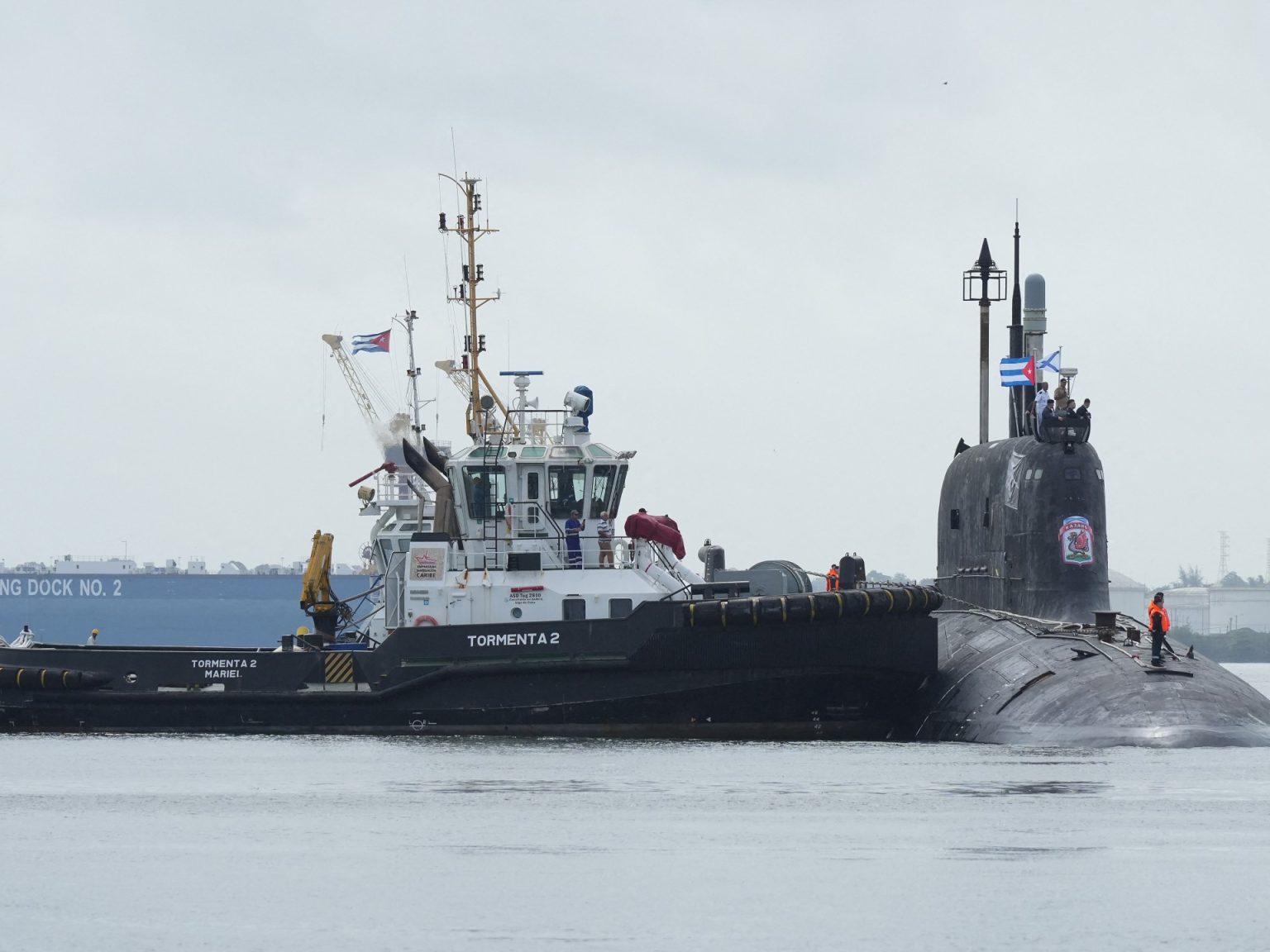The Russian nuclear-powered submarine Kazan recently completed military drills and sailed into the port of Havana, Cuba, which is only 160 km from the United States. The arrival of this advanced submarine so close to US territory has raised concerns and prompted speculation about the intentions behind the move. It is not unusual for Russian military vessels to visit foreign ports, but the proximity to the US has drawn particular attention to this instance.
The presence of the Kazan in Havana comes at a time of heightened tensions between Russia and the United States, as well as other Western countries. The submarine’s visit is seen as a show of strength by Russia and a reminder of its military capabilities. The Kazan is a nuclear-powered submarine, which gives it greater range and endurance compared to conventional submarines. This, combined with its advanced technology and weaponry, makes it a formidable asset for the Russian navy.
The timing of the Kazan’s visit to Havana is also significant, as it comes amid a period of increased military activity and posturing by Russia. The ongoing conflict in Ukraine, as well as Russia’s involvement in Syria and its strained relations with NATO, have contributed to a sense of unease and uncertainty in international relations. The presence of the Kazan in Cuba adds another layer of complexity to an already volatile situation.
The proximity of the Kazan to the United States has prompted concerns about security and strategic implications. The presence of a Russian nuclear-powered submarine so close to US shores raises questions about surveillance and monitoring capabilities, as well as the potential for escalation in the event of a conflict. The US has not commented publicly on the presence of the Kazan in Havana, but it is likely that military officials are closely monitoring the situation and evaluating the potential risks.
The visit of the Kazan to Havana is also significant from a diplomatic standpoint, as it highlights Russia’s relationship with Cuba and its presence in the Western Hemisphere. Cuba has a long history of ties with Russia, dating back to the Cold War era, and has continued to maintain close relations with Moscow in recent years. The arrival of the Kazan in Havana serves as a reminder of these ties and reinforces Russia’s presence in a region that has traditionally been considered part of the US sphere of influence.
Overall, the presence of the Russian nuclear-powered submarine Kazan in the port of Havana has raised eyebrows and generated speculation about the motives behind the move. Its proximity to the United States, combined with the broader context of international tensions and military posturing, has added a layer of complexity to an already uncertain geopolitical landscape. As the situation continues to evolve, it will be important to closely monitor developments and assess the implications of the Kazan’s visit for regional security and international relations.


